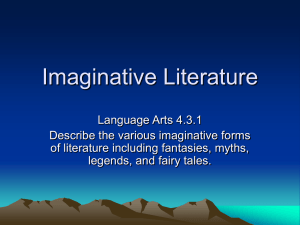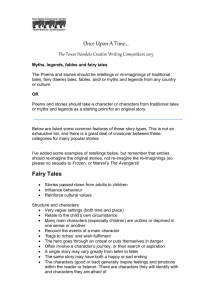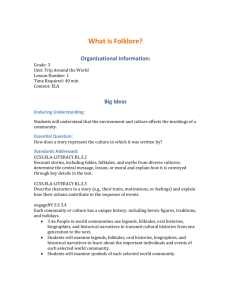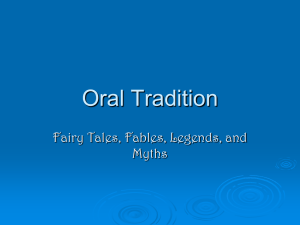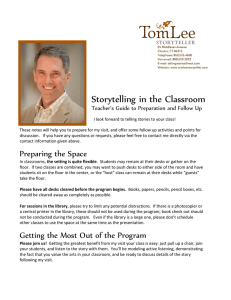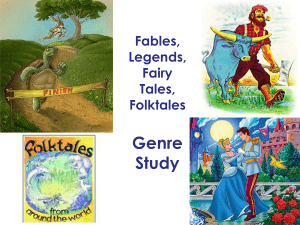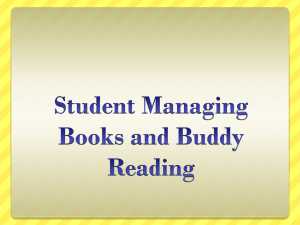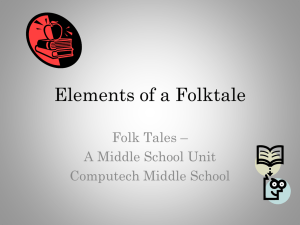EDUC 205: Children`s Literature and the Writing Process
advertisement
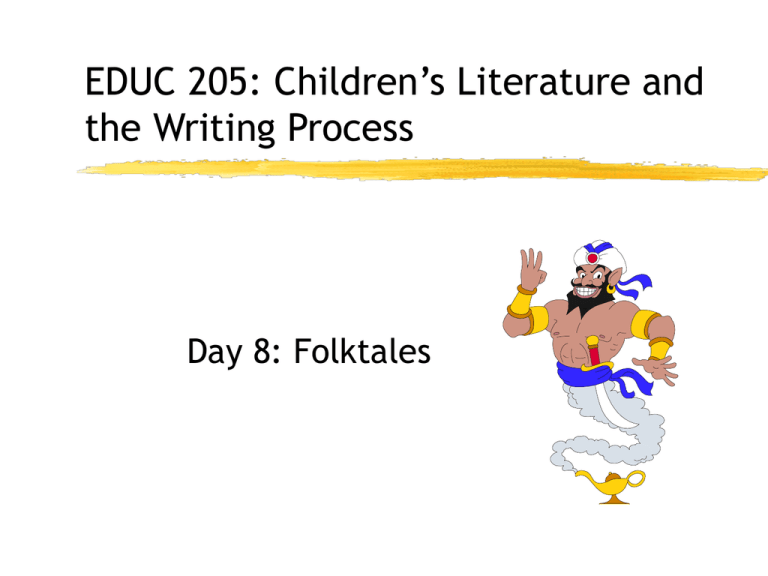
EDUC 205: Children’s Literature and the Writing Process Day 8: Folktales Schedule • Reading from a children’s book • Traditional Literature – characteristics and evaluation • Observation 1 discussion Traditional Literature • Folktales • Fables • Myths • Epics/legends • Bible Stories Origin of Folk Literature • Oral tradition • Folktales, fairy tales, and fables – simple stories that reveal human behavior set in a world of wonder and magic • Myths – gods and creation • Epics and legends – heroes Value of Folk Literature for Children • Story structure • Short and fast-moving • Humorous • Happy ending • Justice prevails • Kindle children’s imaginations Folktales • • • • Simple and direct Repetition Three as a magic number Characters • Good or evil • Strengths or weaknesses Folktales • Motifs • Magical powers • Transformations • Magical Objects • Wishes • Trickery Folktales • American Tall Tales • Paul Bunyan • Johnny Appleseed • Pecos Bill • Sally Ann Thunder • Davy Crockett Fables • Aesop • Brief didactic tales in which usually animals speak as humans • Usually 3 characters • Single incident • Meant to instruct - moral Myths • Explanations of earth, sky, humans • god gods worship • Relationship of humans to gods • Creation • Nature • Hero Epics and Legends • Long narrative or cycle of stories with single hero • Cultural or national hero (human) Bible Stories • Study of Bible as a great work of literature • Myth – human search for and expression of truth and meaning • Helps children understand many other stories, allusions, and situations Reading Observation • Title/author of literature book • Procedure • What techniques appear most effective? • Students’ reactions and responses • To remember Coming Soon… • For Tuesday, check out a Cinderella book from Broadmoor Library; write an evaluation and be prepared to share all or part of the book • On Tuesday, we will sign up for peer teaching topics
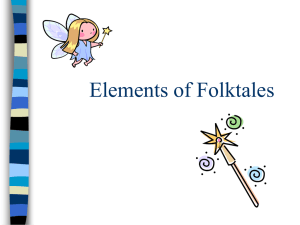
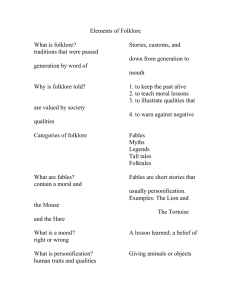
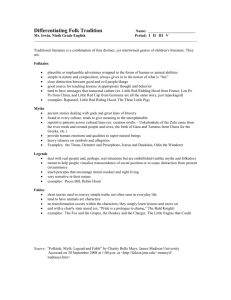
![Essay #4: [4 Short essays will substitute Essay 4]](http://s3.studylib.net/store/data/007737676_2-779981057889e025637152af438b827f-300x300.png)
